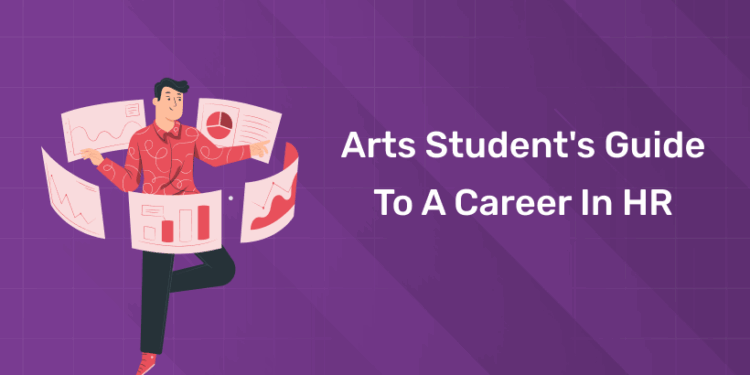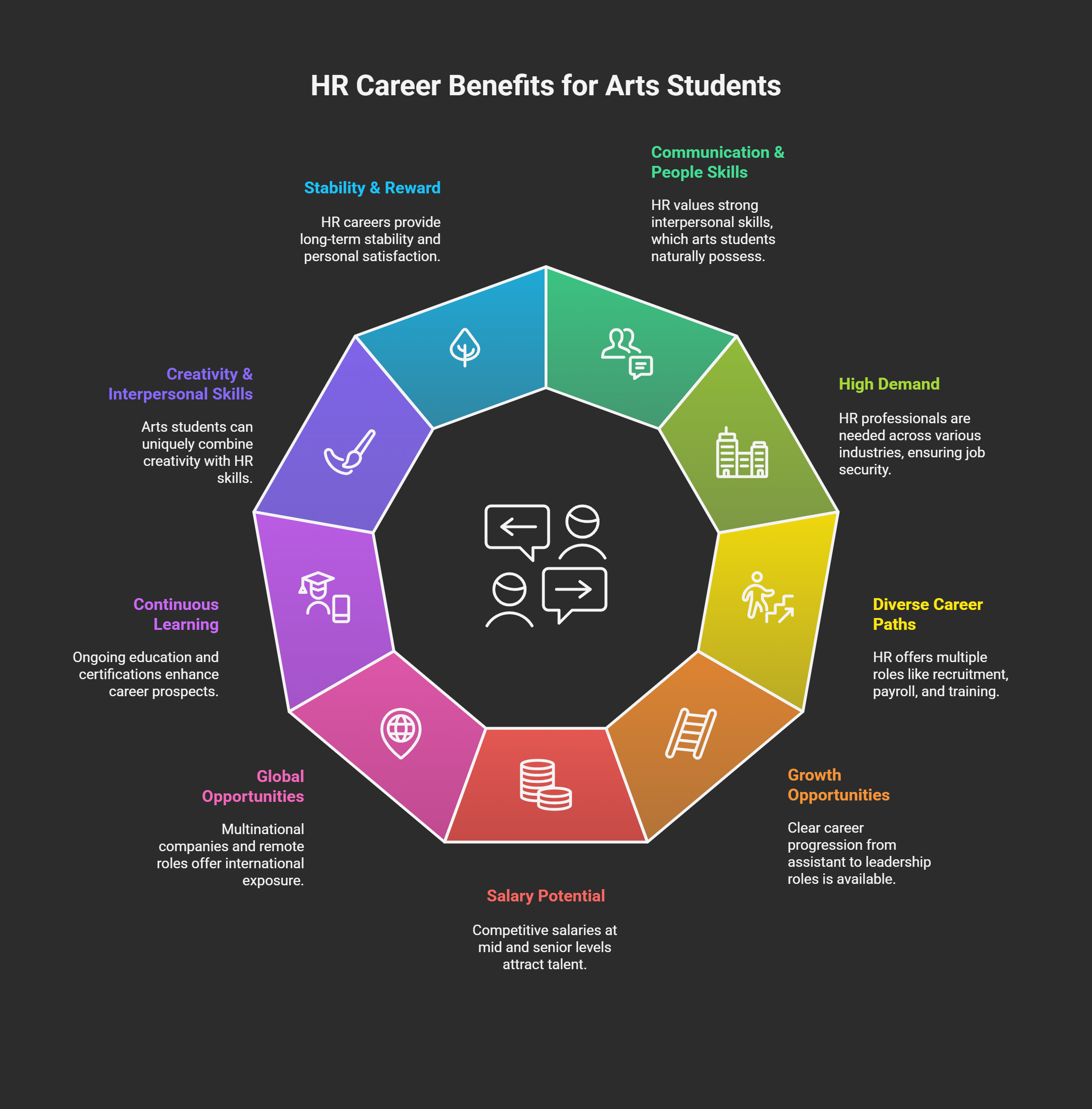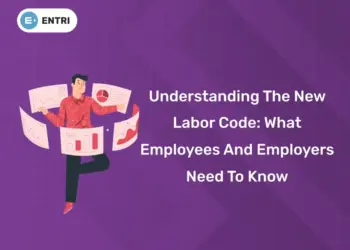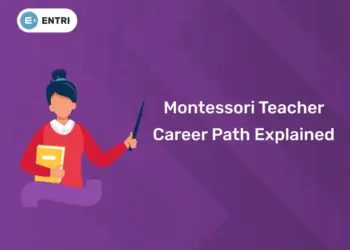Table of Contents
HR jobs are popular for arts students today. Many students want careers that use their people skills. Human Resources is a good choice for this reason. Companies need HR staff to manage workers and processes. HR gives a stable career with many job options. Arts students can do well in HR with training. This guide will explain how arts students can start. You will learn skills, roles, and growth details here.
HR professionals work in every company and every industry. They help with hiring, training, and employee relations daily. Arts graduates have strong speaking and problem-solving skills. These skills are very useful for HR work. But many students do not know how to begin. This guide will show the steps to enter HR. You will also learn about salaries and certifications.
Key Points
- HR is a good option for arts graduates.
- Jobs are stable with many opportunities worldwide.
- Arts students have skills needed for HR success.
- Certifications make careers stronger and more competitive.
- Salary grows with experience and better positions.
Is being an HR your dream? Enrol now for our course on Human Resource!
Introduction
What is HR?
Human Resources, or HR, is a key department in every organization. It focuses on managing people and improving employee satisfaction. HR handles hiring, salaries, performance reviews, and workplace issues. Without HR, a company cannot run efficiently or fairly.
Why is HR Important Today?
HR ensures smooth hiring and proper employee management in companies. It supports businesses by creating a good work culture. HR also deals with legal compliance and employee rights. Modern companies need strong HR systems for employee retention.
Key roles of HR include:
- Recruiting and hiring the right candidates
- Handling employee payroll and benefits
- Training and career development for staff
- Managing conflicts and workplace issues
- Maintaining company policies and compliance
Why Should Arts Students Choose HR?
Arts students have strong interpersonal and communication skills. They also understand culture, behavior, and human interaction better. These skills make them suitable for HR roles everywhere. Unlike technical jobs, HR values soft skills over coding skills. This gives arts graduates an advantage in building HR careers.
What Will This Guide Cover?
- This guide explains how arts students can start in HR.
- It covers reasons to choose HR after arts studies.
- You will learn about required skills and certifications for HR.
- We will discuss career paths and top job roles.
- Salary expectations and growth opportunities will also be explained.
- Lastly, we will cover common challenges and how to overcome them.
Why HR is a Great Career Choice for Arts Students
HR is an ideal career option for arts graduates. It values communication, problem-solving, and people skills over technical knowledge. Arts students naturally develop these skills during their education. HR careers offer strong growth, stability, and global opportunities. Let us explore why HR is a perfect choice.
1. High Demand for HR Professionals
HR professionals are needed in all companies and industries. Every business needs someone to manage employees and policies. This demand makes HR a secure and growing career option.
Why demand is high:
- Companies expand and hire more employees every year.
- Legal compliance requires HR professionals for proper documentation.
- Employee retention needs strong HR policies and engagement.
2. Arts Skills Match HR Requirements
Arts students develop strong interpersonal and analytical skills. These match perfectly with HR responsibilities like hiring and engagement. Soft skills are more important than coding or technical expertise.
Key skills arts students bring:
- Communication for interviews and workplace interaction.
- Empathy for understanding employee concerns and problems.
- Problem-solving for resolving conflicts and company issues.
- Cultural awareness for managing diverse teams.
3. Wide Range of Career Paths
HR is not one job; it has many roles. Arts students can choose based on interest and strengths.
Common HR roles include:
- Recruiter or Talent Acquisition Specialist.
- Training and Development Officer.
- Payroll and Benefits Administrator.
- Employee Engagement Coordinator.
- HR Business Partner or Manager.
4. Clear Career Growth Opportunities
HR offers a structured career ladder with clear growth stages. Arts graduates can start as assistants and move to leadership.
Typical career path:
- HR Assistant → HR Executive → HR Manager → HR Director.
- Specialized paths in recruitment, training, or compliance possible.
5. Global Opportunities and Strong Salaries
HR skills are needed in every country and industry. International companies hire HR professionals for global offices. Salary levels increase with experience and advanced certifications.
Table: Why HR is Perfect for Arts Graduates
| Reason | Why It Matters for Arts Students |
|---|---|
| High Demand | Jobs in every industry and sector |
| Soft Skills Are Key | Arts students excel in communication |
| Many Career Options | Recruitment, payroll, engagement roles |
| Clear Growth Path | From assistant to HR leadership roles |
| Global Opportunities | Work in multinational companies easily |
Become an HR Expert – Enroll in Our HR Management Course Today!
Unlock the secrets to effective Human Resource Management with our expert-led course! Learn recruitment, employee relations, performance management, and more to build a thriving workplace. Start your journey toward a successful HR career today!
Know MoreSkills Arts Students Bring to HR
Arts students have many skills that match HR requirements. These skills help them perform HR tasks effectively and confidently. Most HR roles need strong soft skills instead of technical skills. Arts backgrounds prepare students for communication, understanding, and creative thinking. Let us look at the top skills in detail.
1. Strong Communication Skills
Arts students often practice writing, speaking, and presenting ideas. This makes them great at clear and professional communication. HR roles need strong communication for hiring and employee relations. It is used in interviews, policy explanations, and training sessions.
Why it matters in HR:
- Helps during recruitment interviews and candidate screening.
- Makes company policies easy to explain to staff.
- Improves employee trust and workplace transparency.
- Supports teamwork and builds a positive environment.
- Reduces misunderstandings between employees and management.
2. Empathy and Emotional Understanding
Arts programs often teach about human behavior and emotions. This makes students more understanding and caring toward others. HR professionals handle personal and professional employee issues daily. Empathy helps them listen and support employees during challenges.
Why it matters in HR:
- Improves employee satisfaction and loyalty to the company.
- Helps resolve conflicts in a calm and fair way.
- Makes employees feel heard and respected at work.
- Builds trust between HR and staff members.
- Creates a healthy workplace culture and cooperation.
3. Problem-Solving Ability
Arts graduates learn critical thinking and creative problem-solving skills. These skills are valuable when HR faces unexpected issues. HR often handles payroll mistakes, disputes, or low morale. Quick problem-solving saves time and maintains company productivity.
Examples of HR problem-solving:
- Handling disputes between employees without major conflicts.
- Fixing salary mistakes before employee dissatisfaction grows.
- Finding solutions for sudden staff shortages or resignations.
- Improving training programs to meet company needs.
- Managing policy changes without creating confusion among employees.
4. Cultural Awareness and Diversity Management
Arts students study culture, history, and social sciences deeply. This makes them aware of diversity and inclusion needs. Modern workplaces have employees from many backgrounds and countries. HR professionals must ensure fairness and respect for all.
Why it matters in HR:
- Supports equality and avoids workplace discrimination.
- Helps design policies that respect cultural differences.
- Builds harmony among employees from diverse cultures.
- Improves company reputation as an inclusive employer.
5. Creativity and Innovation
Arts students often think creatively and bring new ideas. HR needs creative thinking for employee engagement and development. Creative HR professionals improve workplace culture and retention.
Examples of creative HR tasks:
- Designing fun employee engagement activities and events.
- Creating new methods for training and skill development.
- Using creative solutions for employee motivation programs.
Table: Key Skills Arts Students Bring to HR
| Skill | How It Helps in HR Work |
|---|---|
| Communication Skills | Improves hiring, training, and relations |
| Empathy | Builds trust and employee satisfaction |
| Problem-Solving | Resolves conflicts and company issues |
| Cultural Awareness | Supports diversity and inclusion |
| Creativity | Improves engagement and employee morale |
Is being an HR your dream? Enrol now for our course on Human Resource!
Education & Certifications Needed for Arts Students to Enter HR
HR is open to students from an Arts background. You already have a strong base with your degree. But extra education and certifications make you more employable. Companies look for people who understand HR systems well. The right courses can give you an extra edge. Here is everything you should know about it.
1. Basic Education Requirement
Most HR roles need a bachelor’s degree as a minimum. Arts students already meet this basic qualification easily. Some specific degrees are even better for HR jobs.
Best Arts degrees for HR careers:
- BA in Sociology – Helps in understanding people and society.
- BA in Psychology – Improves skills in behavior and motivation.
- BA in English – Builds communication and writing skills.
- BA in Economics – Helps in payroll and financial aspects.
Extra tip:
- Add electives related to business or HR if possible.
- Internships during your degree also increase job chances.
2. Postgraduate Courses for HR
If you want higher roles, consider a master’s degree. An MBA in Human Resources is the most popular choice. It covers recruitment, employee management, and labor laws deeply. Some students also choose MA in HRM or related fields.
Benefits of a postgraduate HR course:
- Opens doors to senior-level HR positions.
- Increases salary opportunities in big companies.
- Gives in-depth knowledge of HR systems and strategies.
If an MBA feels costly, choose a PG Diploma in HR. Diplomas are shorter, cheaper, and still valuable for jobs.
3. HR Certifications for Arts Students
Certifications add extra value to your resume. They show you have practical HR skills employers need. Some certifications are free, and some require payment.
Popular HR certifications:
- SHRM-CP – Global certification for professional HR roles.
- aPHR by HRCI – Beginner-friendly and well recognized.
- CIPD Level 3 – Popular in UK and Europe.
Free HR certifications:
- LinkedIn Learning HR Foundations
- OpenLearn People Management
- Coursera Intro to HR (Audit free)
4. Online Short Courses
Short courses help you start an HR career quickly. They cover payroll, recruitment, and employee management basics. You can complete them in a few weeks only.
Best platforms for HR courses:
- LinkedIn Learning
- Udemy
- Coursera
- Alison (Free courses available)
Table: Best HR Certifications for Arts Students
| Certification | Cost | Level |
|---|---|---|
| SHRM-CP | Paid | Advanced |
| aPHR by HRCI | Paid | Beginner |
| CIPD Level 3 Diploma | Paid | Beginner |
| LinkedIn HR Foundations | Free | Beginner |
| OpenLearn People Management | Free | Beginner |
Extra Tips for Education
- Start with free HR courses to learn basics.
- Add one global certification for better job opportunities.
- Practice HR software tools like SAP or Workday.
- Update your resume after each new course.
How to Get Started in HR After Arts
Starting a career in HR after Arts is simple. You need the right plan and proper steps. This section will guide you through every stage. Follow these steps carefully for a smooth HR entry.
1. Build a Strong Knowledge Base
Start by learning HR basics through free resources. Understand topics like recruitment, payroll, and employee relations. Know about labor laws and workplace compliance rules.
Ways to learn HR basics:
- Take free online HR courses.
- Read HR blogs and industry updates.
- Watch HR tutorials on YouTube.
2. Add Professional HR Certifications
Certifications make you stand out in the job market. Choose one that matches your career stage and budget.
Beginner certifications for Arts graduates:
- aPHR by HRCI
- LinkedIn HR Foundations
- Coursera HR Specialization
Advanced certifications after experience:
- SHRM-CP
- CIPD Level 3 Diploma
Also read: Online vs Offline HR Courses: Which Should You Choose?
3. Gain Practical HR Experience
Experience is very important for HR jobs. Start with internships or volunteer roles in HR. Many NGOs and small businesses need HR interns.
Benefits of internships:
- Learn real-world HR practices.
- Build professional HR contacts.
- Improve your resume for future jobs.
4. Develop Key HR Skills
HR roles need strong soft skills. Work on communication, problem-solving, and time management. Learn basic HR software tools like SAP, Workday, or Zoho.
Important HR tools to learn:
- HRMS software for employee records.
- Payroll systems for salary management.
- Recruitment tools like LinkedIn Recruiter.
5. Create a Professional Resume and LinkedIn Profile
A good resume attracts HR recruiters. Highlight your Arts degree and HR certifications clearly. Add any internships, projects, and volunteer experience.
LinkedIn Tips:
- Use keywords like “HR Intern” or “HR Assistant.”
- Connect with HR professionals and join HR groups.
- Share HR-related posts to show interest.
6. Apply for Entry-Level HR Roles
Start with junior positions to gain experience. Common entry-level HR roles include:
- HR Assistant
- Recruitment Coordinator
- HR Intern
- Payroll Assistant
7. Keep Learning and Growing
HR is a changing field with new trends. Stay updated with laws, policies, and HR technology. Take advanced courses after one or two years.
Table: Roadmap for Arts Students Entering HR
| Step | Action |
|---|---|
| Step 1 | Learn HR basics with free courses |
| Step 2 | Get beginner HR certifications |
| Step 3 | Do internships or volunteer in HR |
| Step 4 | Learn HR software tools |
| Step 5 | Build resume and LinkedIn profile |
| Step 6 | Apply for entry-level HR jobs |
| Step 7 | Take advanced certifications later |
Become an HR Expert – Enroll in Our HR Management Course Today!
Unlock the secrets to effective Human Resource Management with our expert-led course! Learn recruitment, employee relations, performance management, and more to build a thriving workplace. Start your journey toward a successful HR career today!
Know MoreSalary & Growth in HR Careers
HR offers good salary options and steady career growth. Your earnings depend on role, experience, and location. This section explains salaries for different HR roles. It also covers growth opportunities in this field.
1. HR Salary at Entry-Level
Arts graduates usually start with entry-level HR jobs. These roles pay less but give good experience.
Common entry-level HR positions:
- HR Assistant
- HR Intern
- Payroll Assistant
- Recruitment Coordinator
Average salary for beginners:
- India: ₹15,000 – ₹25,000 per month
- Abroad: €1,800 – €2,500 per month
Factors that increase entry-level pay:
- Internship experience before joining
- Extra HR certifications
- Knowledge of HR software tools
2. Mid-Level HR Salary
After 2–4 years, you reach mid-level positions. These jobs come with more responsibilities and higher pay.
Common mid-level roles:
- HR Executive
- HR Generalist
- Recruitment Specialist
Average salary:
- India: ₹35,000 – ₹60,000 per month
- Abroad: €3,000 – €4,500 per month
How to grow faster:
- Complete an MBA or PG Diploma in HR.
- Take advanced HR certifications like SHRM-CP.
3. Senior-Level HR Salary
Senior positions pay the highest in HR careers. These roles involve decision-making and leadership tasks.
Common senior positions:
- HR Manager
- Talent Acquisition Head
- HR Director
Average salary:
- India: ₹80,000 – ₹2,00,000 per month
- Abroad: €6,000 – €10,000 per month
Key skills for senior roles:
- Strategic thinking
- Leadership
- Advanced HR analytics knowledge
4. HR Salary in India vs Abroad
| Role | India (Monthly) | Abroad (Monthly) |
|---|---|---|
| Entry-Level | ₹15,000 – ₹25,000 | €1,800 – €2,500 |
| Mid-Level | ₹35,000 – ₹60,000 | €3,000 – €4,500 |
| Senior-Level | ₹80,000 – ₹2,00,000 | €6,000 – €10,000 |
5. Growth Opportunities in HR
HR offers steady career growth with multiple paths. You can move from basic roles to leadership positions. Specializations also increase salary and job security.
Top HR specializations:
- Recruitment and Talent Acquisition
- Payroll and Compensation
- Employee Engagement
- Learning and Development
- HR Analytics
Benefits of specialization:
- More demand in the job market
- Higher pay compared to general HR roles
- More chances for international jobs
6. Tips to Increase HR Salary
- Gain 1–2 certifications every year.
- Learn HR software tools and analytics.
- Build strong communication and leadership skills.
- Network with HR professionals on LinkedIn.
- Stay updated with labor laws and policies.
Challenges & How to Overcome Them
Arts students face some challenges when starting an HR career. These challenges are common but can be solved easily. Here are the major problems and practical solutions for each.
1. Lack of HR-Specific Knowledge
Arts degrees do not cover HR topics in detail. Students often feel lost in HR terms and processes.
Solutions:
- Take beginner HR courses online for free.
- Learn key concepts like recruitment and payroll basics.
- Read HR blogs and join HR communities.
2. Competition from Business Graduates
BBA or MBA students also apply for HR roles. This creates tough competition for Arts graduates.
Solutions:
- Add HR certifications to your resume.
- Highlight communication and people skills in interviews.
- Gain internship experience before applying for jobs.
3. Limited Practical Experience
Many Arts students lack real HR work experience. This makes it harder to get full-time HR jobs.
Solutions:
- Apply for internships or volunteer for HR tasks.
- Join college placement cells to learn recruitment.
- Work on HR projects during online courses.
4. Lower Starting Salary
Entry-level HR salaries are often lower for beginners. This can feel discouraging for new HR professionals.
Solutions:
- Accept internships for experience and growth.
- Gain certifications to increase salary in one year.
- Move to mid-level roles after two years.
5. Difficulty in Learning HR Software
HR jobs need knowledge of tools like SAP or Workday. Arts students may find these tools confusing at first.
Solutions:
- Take free tutorials on YouTube for HR tools.
- Practice using trial versions of HR software.
- Join online workshops for payroll and HR analytics.
Table: Challenges and Solutions for Arts Students in HR
| Challenge | Solution |
|---|---|
| Lack of HR knowledge | Take online HR courses and certifications |
| Competition from graduates | Add certifications and internships |
| Limited practical experience | Do internships and volunteer projects |
| Lower starting salary | Gain skills and move up quickly |
| HR software difficulty | Learn tools through tutorials and practice |
Extra Tips to Overcome Challenges
- Stay updated with HR trends and new laws.
- Network with HR professionals on LinkedIn regularly.
- Join HR groups and attend HR webinars.
- Keep improving soft skills like communication and leadership.
- Always add new certifications every year.
Conclusion
HR is a great career choice for Arts students. It offers many roles, good pay, and growth. Your Arts background gives you unique people skills. With the right certifications, you can stand out. Start small, learn, and grow into leadership roles. HR needs continuous learning and skill development always.
Arts students can succeed in HR with proper planning. Take small steps like courses and internships first. Focus on improving communication and HR software skills. Build a strong resume with real HR experience. Stay updated with HR trends and workplace changes. Your Arts degree can lead to an amazing HR career.
Become an HR Expert – Enroll in Our HR Management Course Today!
Unlock the secrets to effective Human Resource Management with our expert-led course! Learn recruitment, employee relations, performance management, and more to build a thriving workplace. Start your journey toward a successful HR career today!
Know MoreFrequently Asked Questions
1. Can Arts students become successful HR professionals?
Yes, Arts students can become highly successful HR professionals. HR primarily values soft skills like communication, empathy, problem-solving, and people management, which Arts students naturally develop during their studies. With the right certifications, internships, and practical experience, Arts graduates can easily compete with business graduates and grow into leadership roles in HR. Many multinational companies actively hire Arts graduates for HR roles due to their unique perspectives and interpersonal skills. Continuous learning and gaining real-world experience are key to long-term success in HR.
2. What are the entry-level HR roles suitable for Arts graduates?
Arts graduates can start with entry-level roles such as HR Assistant, HR Coordinator, Recruitment Intern, Payroll Assistant, or Employee Engagement Coordinator. These roles focus on administrative tasks, recruitment support, and basic HR operations. Entry-level positions provide valuable exposure to HR processes, workplace policies, and employee interactions. They also allow Arts graduates to gain practical experience that is essential for mid-level roles. Internships or volunteering in HR before graduation can help secure these roles more easily.
3. Do Arts students need an MBA to work in HR?
No, an MBA is not strictly required to start a career in HR. A bachelor’s degree in Arts along with relevant certifications and internships is enough for entry-level HR jobs. However, an MBA or PG Diploma in HR can be beneficial for higher-level roles, managerial positions, and international opportunities. Advanced degrees also provide in-depth knowledge of HR strategy, labor laws, and organizational behavior. Arts graduates can start without an MBA and pursue it later to accelerate career growth.
4. Which HR certifications are best for Arts students?
Arts students can choose from both free and paid HR certifications. Free certifications include LinkedIn Learning HR Foundations, OpenLearn People Management, and Coursera’s Introduction to HR Management (audit option). Paid certifications like SHRM-CP, HRCI aPHR, and CIPD Level 3 Diploma are globally recognized and offer better career opportunities. Certifications help build practical HR knowledge, improve your resume, and increase chances of higher salaries. Choosing a certification depends on your career stage, budget, and target job role.
5. How can Arts students gain practical HR experience?
Practical experience is vital for entering HR. Arts students can gain experience through internships in companies, volunteering in NGOs, or participating in college HR clubs. Internships allow students to handle recruitment, payroll, employee engagement, and training tasks under supervision. Working on small HR projects during online courses also adds experience. Even short-term roles help build a professional network and improve understanding of workplace dynamics. This experience makes Arts graduates more competitive for full-time HR roles.
6. What are the average salaries for HR roles for Arts graduates?
Entry-level HR positions in India usually offer ₹15,000–₹25,000 per month, while mid-level roles range from ₹35,000–₹60,000 per month. Senior HR positions like HR Manager or HR Director can earn ₹80,000–₹2,00,000 per month depending on experience and location. Internationally, entry-level HR roles start around €1,800–€2,500 per month, mid-level roles €3,000–€4,500, and senior roles €6,000–€10,000 per month. Salaries increase with certifications, specialization, and proven experience in HR functions.
8. Can international opportunities be explored with an Arts background in HR?
Yes, Arts graduates can explore international HR roles. HR skills like recruitment, employee engagement, and payroll management are needed worldwide. Advanced certifications like SHRM-CP and CIPD increase global employability. Knowledge of global labor laws, cultural awareness, and proficiency in English improves chances. Many multinational companies actively hire Arts graduates for HR roles across countries.
7. What skills should Arts students focus on for HR careers?
Arts students should focus on communication, empathy, problem-solving, and leadership skills. Knowledge of HR software like SAP, Workday, or Zoho is also helpful. Learning payroll management, recruitment processes, and labor laws adds practical value. Creativity and cultural awareness help in employee engagement and diversity management. Continuous skill improvement, networking, and certifications further enhance employability and career growth.
9. How can Arts students overcome challenges in HR?
Common challenges include lack of HR knowledge, competition from business graduates, limited practical experience, low starting salary, and difficulty with HR software. These can be overcome by taking online courses, gaining certifications, doing internships, practicing HR tools, and networking with HR professionals. Continuous learning, volunteering, and using platforms like LinkedIn or Coursera helps build confidence and competence. Proper planning ensures Arts graduates overcome initial obstacles easily.
10. What is the future growth potential for Arts graduates in HR?
The HR field offers excellent growth potential for Arts graduates. Starting as an HR Assistant, one can grow into HR Manager, Talent Acquisition Head, or HR Director. Specializations like payroll, recruitment, employee engagement, learning and development, and HR analytics enhance career growth. Global opportunities and demand for skilled HR professionals ensure long-term stability. Continuous certifications, practical experience, and networking increase chances for promotions and higher salaries.












